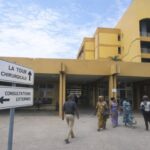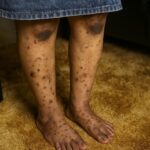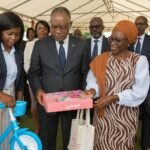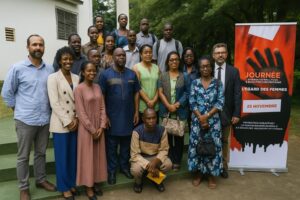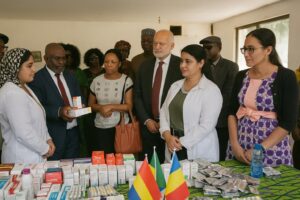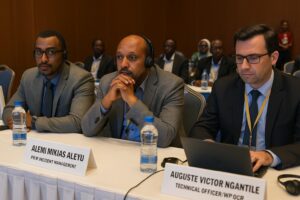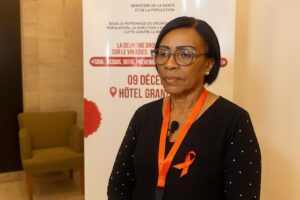Cholera Surge and Humanitarian Mobilisation
Since 23 June, health authorities in the Republic of the Congo have wp-signup.phped 500 suspected cholera cases and 35 related deaths, figures that officials described as “the highest lethality rate in recent memory”, underscoring the urgency of a coordinated humanitarian mobilisation.
- Cholera Surge and Humanitarian Mobilisation
- Strategic Role of the Emergency Relief Fund
- Government–CRC–FICR Coordination Mechanisms
- European Union Support Signals Solidarity
- Regional Dynamics and Cross-Border Health Security
- Community Engagement on Mbamou Island
- Implications for Diplomacy and Development
- Next Steps in Sustainable Health Governance
- Digital Tools Bolster Outbreak Tracking
- Transparent Funding Builds Public Trust
The Congolese Red Cross, working closely with the International Federation of Red Cross and Red Crescent Societies, unveiled an Emergency Disaster Relief Fund in Brazzaville on 26 August, signalling a decisive turn from situation assessment toward accelerated field intervention.
Senior officials, international partners and civil-society representatives attended the ceremony, where director of cabinet Donatien Mounkassa emphasised that rapid funding mechanisms are vital to prevent the outbreak from overwhelming facilities in Brazzaville and the hard-to-reach island of Mbamou, the current epidemiological epicentre.
Strategic Role of the Emergency Relief Fund
The Disaster Relief Emergency Fund, commonly called DREF, serves as a revolving facility that releases resources within forty-eight hours, allowing early deployment of water-sanitation technicians, community health volunteers and logistics specialists while more substantial pledges are still being finalised.
In the current Congolese scenario, the initial DREF allocation targets surveillance strengthening, rapid diagnostic kits and safe-burial training, interventions designed to reduce the case-fatality ratio below internationally accepted benchmarks.
Government–CRC–FICR Coordination Mechanisms
Health ministry experts are integrated into the Red Cross command structure through daily situation reports, ensuring that public-sector epidemiological data and humanitarian assessments converge before resource deployment decisions are taken.
According to field officers, this hybrid model reduces duplication between governmental rapid-response teams and CRC volunteers, while preserving the sovereign leadership of the Ministry of Health in line with internationally endorsed cluster coordination principles.
European Union Support Signals Solidarity
European Union chargé d’affaires Anne Marchal confirmed a financial envelope of two hundred and twenty thousand euros, equivalent to about 540 million CFA francs, channelled through the EU Civil Protection and Humanitarian Aid Operations service.
Marchal underlined that the investment complements the national response rather than substitutes it, framing EU involvement as a gesture of partnership with Congolese institutions and a contribution to regional health security in Central Africa.
Regional Dynamics and Cross-Border Health Security
Health corridors along the Congo River facilitate intense movement between Brazzaville, Kinshasa and riverine communities, making cross-border collaboration indispensable for outbreak containment.
Officials note that Mbamou Island’s porous shoreline allows informal traffic to neighbouring Democratic Republic of Congo villages, underscoring the need for harmonised case definitions, mutual notification protocols and coordinated water-quality surveillance.
Community Engagement on Mbamou Island
Red Cross volunteers have been recruited locally to ensure that health messaging resonates with the island’s predominantly fishing population, whose livelihoods rely on daily river contact.
Hand-washing stations assembled from readily available materials and chlorine distribution points are being established near markets and boat landings, measures expected to reduce the fecal-oral transmission route highlighted in ministry briefings.
Implications for Diplomacy and Development
The outbreak places public health at the centre of Congo’s diplomatic agenda, with Brazzaville leveraging its recent leadership in regional peace dialogues to advocate for stronger cross-border surveillance financing.
Observers argue that effective outbreak management could reinforce investor confidence in the country’s broader resilience architecture, a priority embedded in the National Development Plan endorsed by President Denis Sassou Nguesso.
A senior Central African diplomat, requesting anonymity, noted that “health security diplomacy now carries as much weight as traditional security cooperation in government circles”, hinting at an emerging paradigm across the sub-region.
Next Steps in Sustainable Health Governance
Authorities plan to integrate lessons from the cholera response into routine water-sanitation infrastructure projects, including those financed through forthcoming public-private partnerships, aiming to shift from emergency to prevention without losing the momentum generated by the DREF launch.
Follow-up evaluations scheduled over the next six months will measure reduction in case numbers, community knowledge indicators and timeliness of cross-border alerts, providing a data-driven basis for scaling the approach nationwide.
Digital Tools Bolster Outbreak Tracking
The health ministry’s digital surveillance dashboard, developed with support from a regional telecom operator, aggregates laboratory confirmations in near real-time, enabling decision-makers to redirect chlorine stocks within hours instead of days.
Mobile data collected by CRC volunteers through a dedicated application also feed the platform, offering granular insights into household water practices and flagging clusters that require intensified hygiene promotion.
Transparent Funding Builds Public Trust
CRC treasurer Régine Ngouala stated that all DREF-related transactions are published within fifteen days on an open portal, a measure intended to reassure both Congolese taxpayers and international donors that resources reach frontline activities.
External audits will be conducted by an independent Congolese firm in cooperation with the Supreme State Audit Office, aligning the response with national transparency reforms championed by parliamentary committees.
Diplomatic observers suggest that showcasing such fiscal openness during a health emergency could serve as a prototype for future climate-related disaster funds, potentially broadening Congo’s eligibility for blended finance instruments under discussion at multilateral development banks.
By integrating accountability into the emergency phase, authorities aim to shorten the traditional gap between crisis management and long-term institutional reform.

